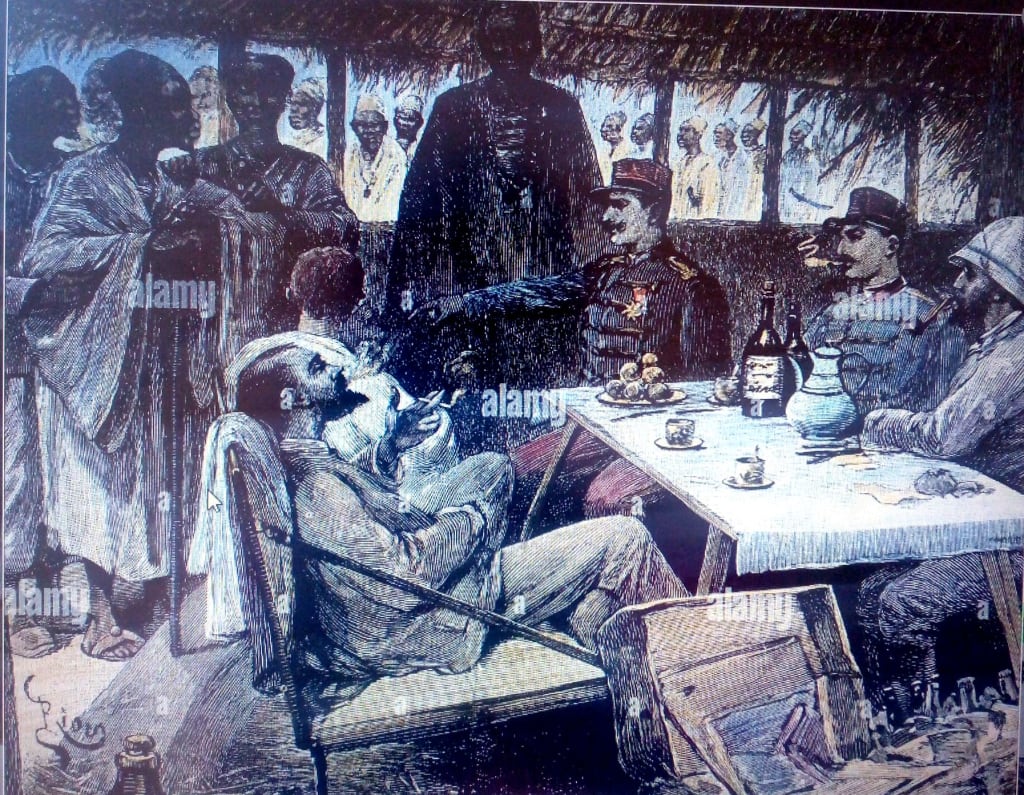"Colonial History of Nigeria: British Rule and the Struggle for Independence"
"The Scramble for Africa and British Colonization"

Nigeria's colonial history is a complex narrative marked by British rule and the subsequent struggle for independence. This historical journey has left an indelible mark on the nation's cultural, political, and social landscape.
The Scramble for Africa and British Colonization:
The late 19th century witnessed the European scramble for African territories. Nigeria, with its rich natural resources and strategic importance, became a target of British imperial interests. The British were not the only colonial power in Nigeria, as the northern region was under the influence of the Sokoto Caliphate.
The British, driven by economic and geopolitical factors, established their presence in Nigeria. The initial interactions between the British and the diverse Nigerian ethnic groups were characterized by a complex interplay of cooperation, resistance, and cultural exchange.
British Colonial Rule and Its Impact:
The period of British colonial rule in Nigeria had profound and far-reaching consequences. British administrators imposed their governance structure, introducing indirect rule in some regions. This system involved using traditional leaders as intermediaries, which had a lasting impact on the traditional political structure of Nigeria.
Economically, Nigeria became a source of valuable resources, particularly palm oil, rubber, and later, petroleum. The exploitation of these resources led to significant economic disparities and environmental challenges.
Socially and culturally, British colonialism brought changes to education, religion, and urbanization. The introduction of Western education and Christianity, for instance, transformed Nigerian society. While these changes were often met with resistance and conflict, they also contributed to the emergence of a new elite class.
The Rise of Nationalism and Independence Movements:
As Nigeria underwent transformation under British rule, the seeds of nationalism began to germinate. A new generation of educated Nigerians grew discontent with the status quo and began demanding self-governance. Leaders like Herbert Macaulay, Nnamdi Azikiwe, and Obafemi Awolowo played pivotal roles in articulating the desires of the Nigerian people.
The post-World War II period saw a surge in nationalist activities and the formation of political parties and organizations advocating for independence. The National Council of Nigeria and the Cameroons (NCNC) and the Action Group (AG) were key political entities that emerged to challenge colonial rule.
Struggles, Protests, and Key Events:
The path to independence was fraught with struggles, protests, and significant events. The 1945 General Strike, which witnessed widespread labor unrest and political activism, is a notable milestone in this journey. The strike demonstrated the growing determination of Nigerians to shape their own destiny.
Negotiations with the British colonial authorities were a complex and often contentious process. Discussions led to the Clifford Constitution of 1922, the Richards Constitution of 1946, and ultimately, the Macpherson Constitution of 1951, which granted more autonomy to the regions.
Achieving Independence and the Birth of Nigeria:
After years of negotiations and political maneuvering, Nigeria finally achieved independence on October 1, 1960. The nation, now a federation, comprised three regions: Northern Nigeria, Western Nigeria, and Eastern Nigeria. Dr. Nnamdi Azikiwe became the country's first President, with Sir Abubakar Tafawa Balewa serving as the Prime Minister.
The road to independence was marked by challenges, but it also represented the triumph of the Nigerian people's determination and unity. Nigeria's independence marked a significant milestone in the struggle against colonialism in Africa and paved the way for the country to determine its own destiny in the post-colonial era.
In conclusion, Nigeria's colonial history, with its impact of British rule and the struggle for independence, is a testament to the resilience and determination of the Nigerian people. The legacy of this period continues to shape the nation's identity and its role in the broader context of African and global history.
About the Creator
ThankGod Nicholas
"Hey everyone i'am ThankGod, a passionate writer on a mission to captivate hearts and minds through my stories. Join me on this incredible journey as i weave unforgettable literary adventures with me!"





Comments (1)
Wonderful piece!